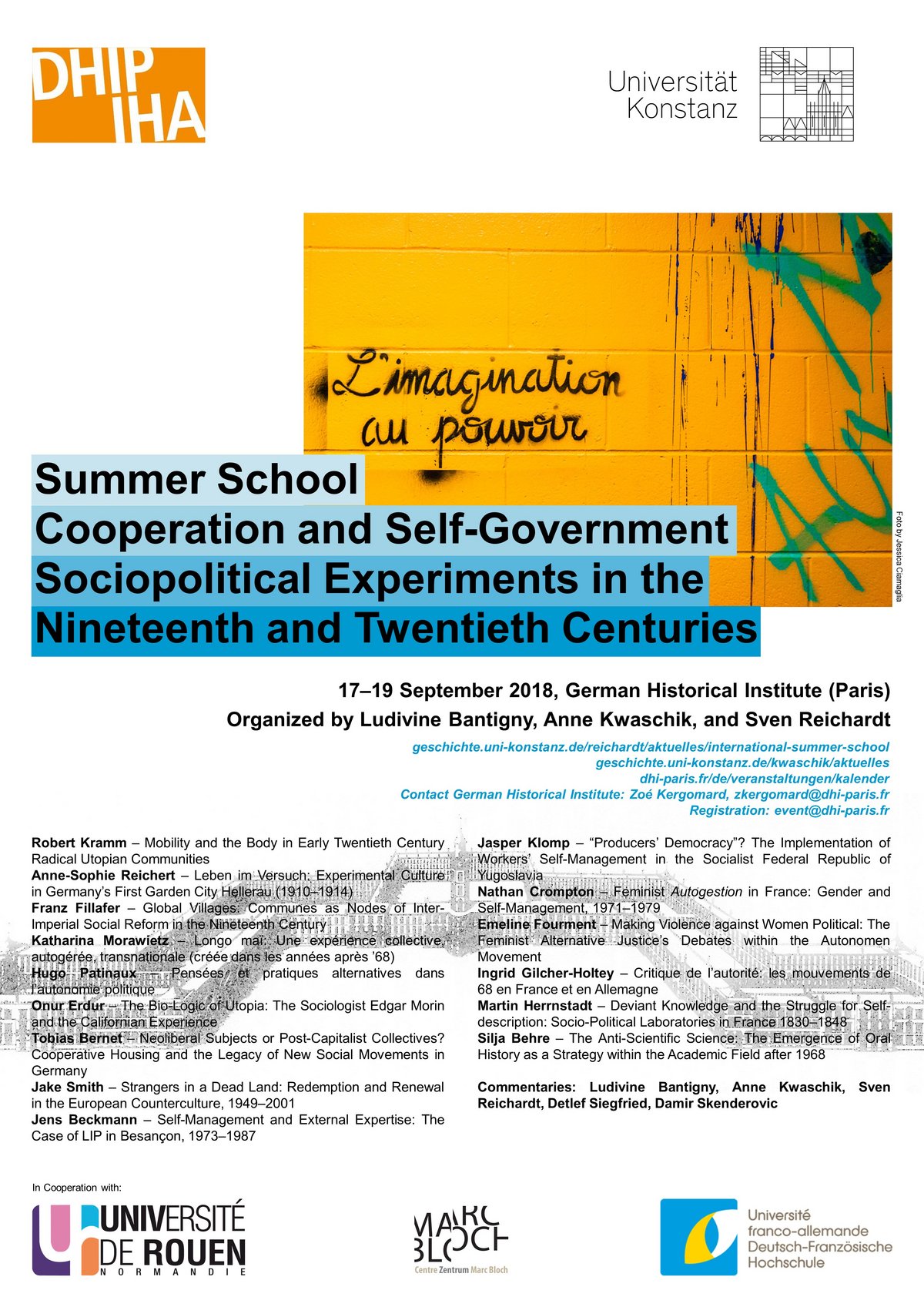Cooperation and Self-Government
Sociopolitical Experiments in the Nineteenth and Twentieth Centuries

The International Summer School 2018 "Cooperation and self-government: Sociopolitical experiments in the nineteenth and twentieth centuries" will take place from 17-19 September 2018 at the German Historical Institute in Paris.
In the wake of the 1968 movement, many people tested alternative models of habitation, labour and living. In self-descriptions and research, these models have been characterised as movements away from the ‘coldness’ of capitalism towards the intimacy of a self-established and self-governed social collective. (Reichardt, 2014) The search for a state of freedom from society and the theoretical reasoning behind it were viewed as products of an aversion to the reality principle (‘All power to the imagination!’) and inserted into the tradition of a Romantic project. Within this context, lines have been drawn from the turn-of-the-century life reform and youth reform movements to the 1968 movement. Regardless of clear differences in self-conception and historical contextualisation, similar views are also relevant for the early socialist production cooperatives and settlement projects that were realised after 1820 by the supporters of and dissenters from Robert Owen and Charles Fourier. (Kwaschik, 2017)
These movements however created new spaces that not merely sought to isolate themselves from the external world, but also developed methods and techniques for creating patterns of self-modelling and self-management (Practices of self-management emerged in factories during the 1970s in various European countries), an aspect that since around 2000 has increasingly been applied to the 1968 movements. (Boltanski/Chiapello, 1999)
The summer school interrogates ‘the real of utopia’ and explores as closely as possible the various modalities of this ‘life changing’ (Bantigny, 2018; Riot-Sarcey, 1999). Within the proposed long-term perspective, it becomes clear that in both the nineteenth and twentieth centuries, the establishment of alternative worlds was accompanied on the one hand by a moralised discourse of alienation meant to describe the present reality, and on the other by experiments that sought to make communalisation more organised and scientific. Accordingly, one would need to look more closely, from the perspective of the history of knowledge, at the constellations that led, in both cases, to a search for alternatives within the conflicting fields of social criticism and communalisation, utopia and life experiments.
The goal of the summer school is to discuss the connections between diagnoses of the present, social experiments and social sciences in the nineteenth and twentieth centuries, taking the 1968 movement as a starting point. Based on Elias’ understanding of modernisation as a process, the summer school understands these moments as changes in the We-I-Balance (Elias, 1987) and will explore its characteristics and rationales. It seeks to consider how the intersections of everyday patterns of perception and scientific concepts can produce new ‘self-evident ideas about the nature of the world and the dimensions of its historicity’. (Speich-Chassé/Gugerli, 2012)
German Historical Institute, Paris: University of Konstanz; in cooperation with the University of Rouen
Venue: German Historical Institute, Paris
Dates: 17-19 September 2018
Organizers: Ludivine Bantigny (GRHis/Université de Rouen), Anne Kwaschik (Universität Konstanz), Sven Reichardt (Universität Konstanz)
